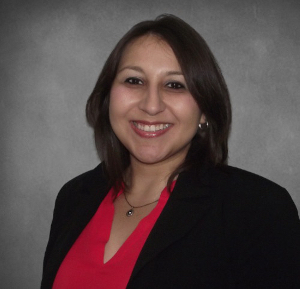
Looking back, Jessica Juarez, PhD, says her passion for forensic anthropology can be linked to a lifelong love of puzzles and science, using her skills and knowledge to put pieces together and find answers.
“As an undergrad, I took a forensic anthropology class and I thought it was really interesting that you could find out so much about a decedent from a skeleton and, in the process, help their family in that way,” Dr. Juarez said. “That’s really where my passion for the field began and it just continued from there.”
Now, Dr. Juarez has the distinction of being the first forensic anthropologist to be accepted into the medical school’s new forensic anthropology postdoctoral fellowship that officially launched earlier this summer. WMed is one of just a few institutions in the U.S. to offer the specialized training.
Dr. Juarez said the postdoc fellowship in Kalamazoo marked an opportunity to continue her academic and professional growth as a forensic anthropologist. She said the field of forensic anthropology is small and opportunities to take part in modern casework are limited.
“I was pleasantly surprised to see how many forensic anthropologists are at WMed,” Dr. Juarez said. “That brings with it a lot of opportunities for discussion and meaningful experiences. It was also exciting to see how our forensic anthropologists work so closely with our forensic pathologists. Oftentimes, in the U.S., forensic anthropologists are not integrated in that way so to have a program that is designed to bolster my skill sets in a setting where I’m working alongside pathologists every day is really exciting.”
Christine Pink, PhD, D-ABFA, assistant professor in the Department of Pathology, is leading the new two-year fellowship at the medical school.
Dr. Pink is one of approximately 100 practicing forensic anthropologists in the U.S. who are board-certified with the American Board of Forensic Anthropology (ABFA). She has said previously that the new fellowship will provide postdocs with excellent training and a focus on professionalism, mastery of core competencies, and research, with the end goal of earning board certification from the ABFA. The new fellowship is also meant to serve as a vessel to promote and increase diversity by championing and welcoming trainees who come from populations that are underrepresented in the field of forensic anthropology.
For Dr. Juarez, the postdoc fellowship is a homecoming of sorts. She was born in Oscoda, Michigan, where her father was stationed at the time with the U.S. Air Force. Shortly after her birth, her family moved to Korea before eventually settling in Texas when her father retired from the military.
She earned a bachelor of science degree in forensic science in 2007 from Baylor University and followed that up with a master’s degree in anthropology from the University of Cincinnati in 2009.
After earning her master’s degree, Dr. Juarez taught general anthropology and physical anthropology at the Alamo Community College District in San Antonio, Texas, before earning her PhD in Biomedical Sciences in 2018 from the University of North Texas Health Science Center.
Dr. Juarez began her postdoc training at WMed in September and she said her experience so far has been exciting and the amount of information she has absorbed in that time has been “like drinking from a fire hydrant.”
“There were cases that I had seen in textbooks, cases I had heard about or seen on TV, but never seen in real life or in person,” Dr. Juarez said. “Then, in my first or second week on the job, I started to get hands-on experience with how things are done here from Dr. Pink and Jered Cornelison, PhD. They told me the best way to learn is to do. So, I was assigned cases quickly and that was exciting because I was able to put all of my skills to use on modern casework, not just skeletal analysis.
Almost two months into the postdoc fellowship, Dr. Juarez said she has gained an appreciation for how the forensic anthropologists and forensic pathologists at WMed collaborate with one another and work side by side on cases daily. At the medical school, forensic anthropologists assist on an array of different medicolegal death investigations as team members in the Office of the Medical Examiner, which is housed at the medical school’s W.E. Upjohn M.D. Campus and serves 13 counties in western Michigan. Additionally, the Department of Pathology and the medical examiner’s office work closely with the team of forensic anthropologists, as well as the Toxicology Laboratory, the Division of Neuropathology, the Histology research lab, and the Biomedical Engineering lab, which are all housed at the medical school, as well as a local forensic odontologist and cardiovascular pathologist.
“I’ve been learning a lot of different ways that scientific identifications can be made through the lens of a forensic pathologist and a forensic anthropologist,” Dr. Juarez said. “There are a lot of different ways that forensic anthropologists can be involved in the process and I’ve only started to scratch the surface of how that works here.”
As she dives deeper into her training, Dr. Juarez said she is looking forward to the array of cases that will come her way over the course of her two-year postdoc fellowship. She said she’s also looking forward to the opportunity to earn her certification from the ABFA following her time in Kalamazoo.
“It will be daunting and hard but not impossible because of the casework I will have coming in and the supports that’s in place here,” she said. “I’ve had a really exciting experience so far and I’ve seen a lot of diverse casework, but I think equally as important is the expertise of the faculty, the pathologists here, the team of death investigators and the autopsy techs, as well as the administrative support. It is such a large team effort to make identifications for the Kalamazoo community and the other counties we serve. It’s been really phenomenal.”
